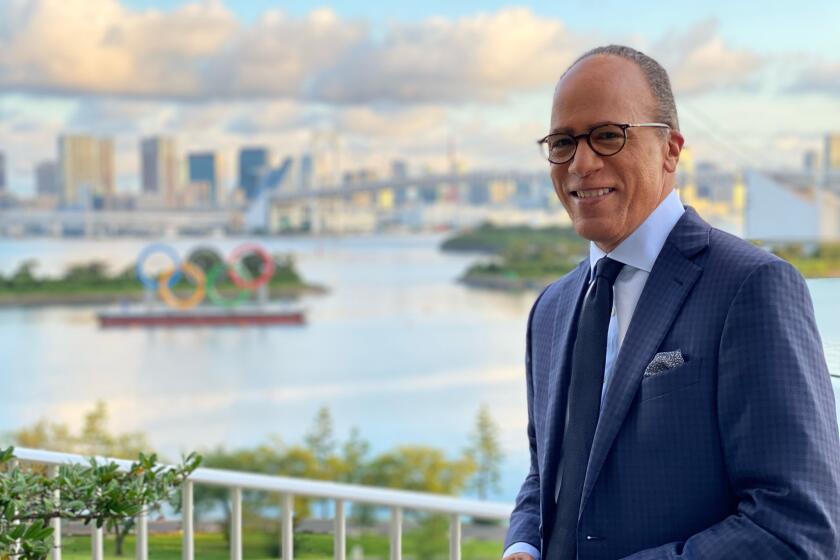Shrinking Funds Curb Bush State Campaign
- Share via
KENNEBUNKPORT, Me. — Languishing far behind his probable November opponent in California polls, Vice President George Bush has nevertheless been forced to cut back his campaigning there because of his shrinking political war chest, campaign officials said Tuesday.
According to campaign figures, Bush has already spent all but $1.5 million of the $27 million that candidates are allowed to spend in the primary season, which formally lasts until the Republican National Convention in late August.
Bush will not receive an infusion of capital until after he becomes the official nominee and picks up the $46.1 million in federal money that candidates can spend for the general election.
Up to Six Days Cut
Bush’s campaign manager, Lee Atwater, said five or six travel days have been cut from Bush’s tentative schedule to compensate for budget overruns.
Although Bush’s California coordinators had planned that he would spend at least five days in the state before the June 7 primary, the trip has been cut to three days. It will begin Sunday, two days before election day.
“Travel costs were more than we anticipated,” Atwater said. “We have not gone over budget in any other area.”
Bush, asked about reports of shrinking funds, said the campaign would “live in the amount that’s available.”
“We’re trying to come out even,” he said, adding: “It’s expensive to take this show on the road.”
Benefit of Contested Primary
In addition, while the Bush campaign slices costs, his probable adversary, Massachusetts Gov. Michael S. Dukakis, has both what appears to be more money on hand and the benefit of a contested primary that gives him free television coverage.
Dukakis also will receive his $46 million in federal general election funds in mid-July, a month before Bush’s windfall, because the Democratic convention occurs first.
Republican officials and Bush campaign aides contend, however, that the timing will give Bush more money down the election stretch when more Americans begin to pay attention to politics.
“I don’t think anybody’s that concerned about getting the money later,” said Phil Smith, executive director of the Republican National Finance Committee. “I don’t think a whole lot can be done in that (month-long) time.”
The forced respite from the road will also give the Bush campaign time to craft a general election message, the beginnings of which were developed here during four days of meetings with domestic and fiscal policy advisers.
Hiring Briefly Delayed
The hiring of issues advisers and other general election additions may have to be delayed, but only briefly, campaign officials said.
According to the most recent reports submitted to the Federal Election Commission, the Bush campaign through April 30 had spent $24.84 million of the $27 million maximum, while the Dukakis campaign’s applicable bills totaled $21.66 million and Jesse Jackson’s candidacy had cost $10.5 million.
In the month since, Bush’s cushion has been whittled to between $1 million and $1.5 million, according to financial and operations manager Ede Holiday.
Mark Gearan, a Dukakis spokesman, said no tally of the Massachusetts governor’s campaign spending for the month was available. But campaign officials were confident enough of their funding to announce recently that they could afford to increase California television advertising if need be.
The most immediate Bush pinch will be felt in California, where campaign officials were more dismayed at the brief nature of Bush’s planned trip than concerned about the overall impact.
Campaign Lost Its Urgency
Since Bush has captured the nomination, the primary campaign has lost its urgency, but officials had hoped that a strong Bush presence there would bolster his standing in the polls. A recent Los Angeles Times poll had the vice president lagging 17 points behind Dukakis in a hypothetical November match-up.
Advertisements meant to assist in the effort have been stripped from the campaign’s planning, in part because of the expense.
“It has a lot of impact,” said Eileen Padberg, Bush’s California campaign manager. But, she said: “It’s not something that will create a problem in the long run.”
Bush also can engage in some campaign activities during the lean months by, in essence, borrowing against his general election total. Political polling and commercial filming for the general election can be done as long as the products are not used before the convention, Holiday said.
In addition to the $46.1 million in federal funds, each candidate will receive $8.3 million in donations from their political party after the conventions.
More to Read
Get the L.A. Times Politics newsletter
Deeply reported insights into legislation, politics and policy from Sacramento, Washington and beyond. In your inbox twice per week.
You may occasionally receive promotional content from the Los Angeles Times.











